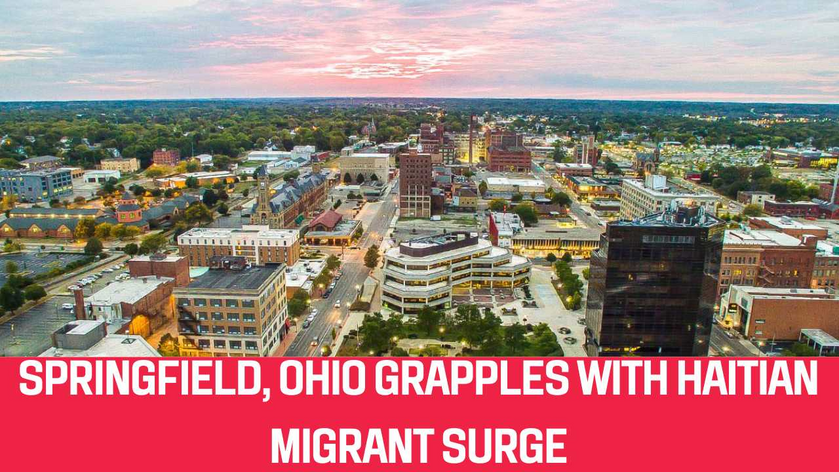SPRINGFIELD, OH - Haitian migrants have reshaped Springfield, Ohio, with around 20,000 arriving in the town in recent years.
The Biden administration recently granted temporary legal status to approximately 300,000 Haitians already in the U.S., citing unsafe conditions in Haiti that prevent their return. This decision comes as Haiti faces severe instability, with the government extending a state of emergency nationwide due to widespread gang violence, highlighting the ongoing security crisis in the country, according to reports from the Associated Press.
Today (Wednesday) Ohio Governor Mike DeWine announced plans to deploy law enforcement and allocate millions in healthcare resources to Springfield, which is facing a significant influx of Haitian migrants.
There has been heated debate in Springfield and on social media over unverified claims that Haitian migrants are eating household pets. The city has denied these allegations, despite videos circulating online suggesting otherwise. However, the key issue remains the significant strain on local resources, as acknowledged by city and state officials.
Ohio Attorney General Dave Yost also weighed in, exploring legal options to limit the federal government’s ability to send large numbers of migrants to Ohio, highlighting the state's growing concerns over immigration policy.
Economists say this influx of Haitians has helped revitalize the local economy, especially by filling labor shortages in manufacturing. However, experts say it has also strained local services, such as healthcare and education, due to increased demand for resources like translation services and ESL programs in schools.
Residents tell NewsNation they are additionally concerned about crime in a town that’s already seen a spike in violent offenses. FBI data shows violent crime went up by 142% from 2019 to 2022, the latest year data is available. The agency does not track crime by immigration status.
The surge of Haitian migrants in Springfield, Ohio, has placed significant strain on local services, particularly in healthcare and education. Hospitals in the area are struggling to meet the needs of a growing non-English-speaking population, incurring high costs for translation services, which are essential for effective patient care. This has added financial pressure on already tight hospital budgets.
Schools are similarly affected, as many Haitian children require additional educational support, especially through English as a Second Language (ESL) programs. These programs were already stretched thin, but the sudden increase in demand has led to overcrowded classrooms and a lack of sufficient resources to adequately address students' needs. Teachers and school administrators are finding it difficult to provide individualized attention, and the costs associated with expanding these services are proving to be a heavy burden on the education system.
Furthermore, local government agencies are overwhelmed by the increased need for social services, including housing assistance, food security programs, and community outreach efforts.
Springfield's Mayor Rob Rue has publicly voiced concerns about the city's capacity to handle these challenges and has called on state and federal governments for additional support. The city’s infrastructure, designed for a much smaller population, is struggling to keep pace with the needs of its rapidly growing community.
Cultural integration issues also add complexity, as both new Haitian residents and long-time community members adjust to rapid changes. This situation has led to tensions and misunderstandings, further complicating efforts to effectively manage and support the evolving demographic landscape. The strain on resources is not only a logistical challenge but also a significant social hurdle that Springfield must navigate to ensure a cohesive and supportive environment for all residents.
Many of the individuals who are in Sprinfield have entered the United States through The immigration parole program which allows eligible Haitians to temporarily enter the United States for urgent humanitarian reasons or significant public benefit.
This program is not a pathway to permanent residency but provides a temporary, legal status for those who meet specific criteria, such as having a U.S. sponsor. The program aims to offer relief amid ongoing crises in Haiti, like political instability and natural disasters, allowing migrants to stay legally for a set period, often pending further immigration proceedings.
Springfield's administration has been working on integrating these new residents, addressing housing shortages, providing legal aid for status applications, and managing public safety concerns. Efforts include working with state and federal agencies for more resources and tailored programs for the immigrant community.




















